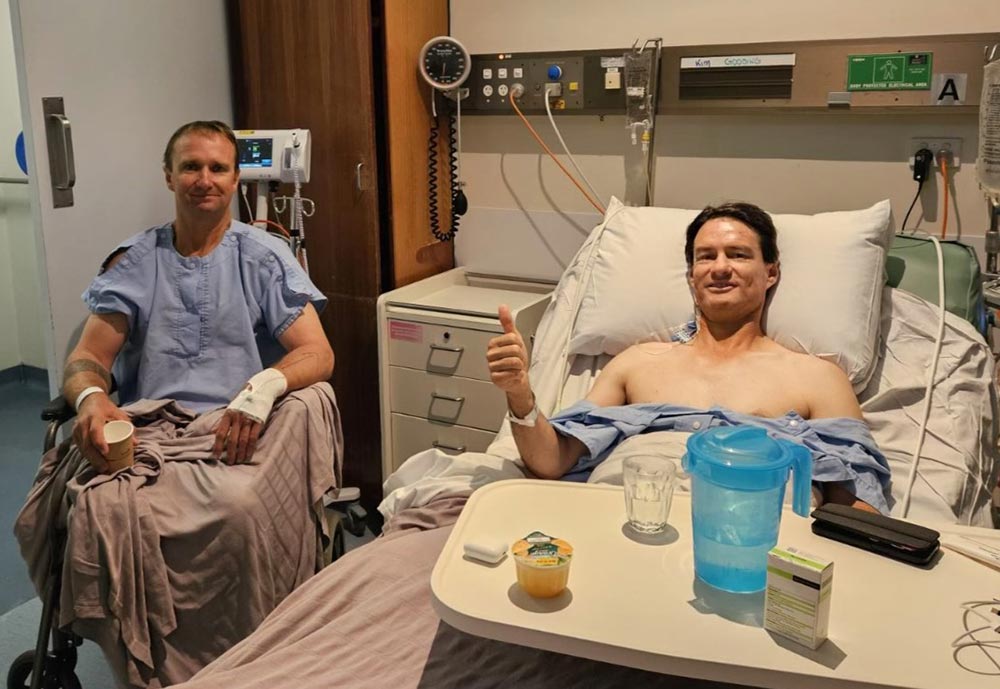Brotherly love – Live kidney donation
 The Gooding brothers
The Gooding brothers
A Goldfields truck driver has provided the ultimate act of love by donating a kidney to his brother.
It was a routine blood test that unveiled Kim Gooding's kidneys were not working well, and he had chronic kidney disease.
The father of two boy's health deteriorated quickly after the diagnosis, and he underwent regular dialysis at Sir Charles Gairdner Hospital's Renal Unit. However, with little improvement it became obvious he would need a kidney transplant.
For around 1,800 Australians currently on the organ transplant waitlist, it can be a matter of life and death. There are an additional 14,000 people on dialysis, some of whom may benefit from a kidney transplant.
Kim's older brother Andrew said, we never had a conversation about it, I just went and got tested and I was a match.
It was the ultimate gift, a second shot at life, a live kidney transplant just before Christmas 2023.
The brothers who grew up in the Wheatbelt town of Kukerin now joke that Andrew, the healthy brother, was wheeled into see his brother after the operation whilst Kim was sitting up smiling looking better than his donor brother.
It's a lovely story of brotherly love, but the Gooding family is still wrapping its arms around Kim's twin brother who has only 23 per cent of kidney function.
In 2023, there was a 13 per cent increase in the total number of living kidney donors with 253 donors, compared to 2022.
Of these, 55 kidney transplants were through the Australian and New Zealand Paired Kidney Exchange Program, the highest number of donors since the commencement of the program began.
Anyone in Australia aged 16 and over can register on the Australian Organ Donor Register. It only takes one minute.
One donor can save the lives of up to seven people and help many more through eye and tissue donation.
For more information follow the link: Understanding living donation (external site)

